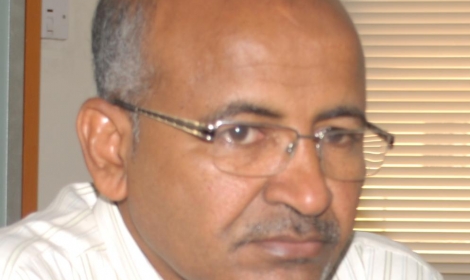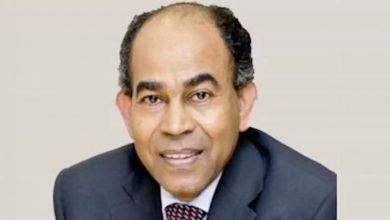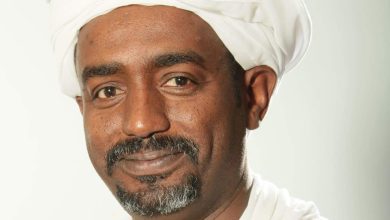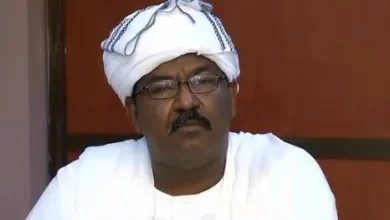Missing People From War in Sudan.. Incitement to Looting and Being Exploited in Service

By: Al-Nour Ahmed Al-Nour
Sudanese Fatima Ahmed Issa lost about half her weight because she did not want to eat, and her sleep decreased, and her tears did not stop for more than 6 months until she almost lost her sight, out of grief for her youngest son, Adel, who left the family home in Khartoum and did not return, as his brother Mohammed says.
Hundreds of families in Sudan are experiencing psychological distress due to the disappearance of their children in mysterious circumstances since the outbreak of war in Khartoum between the army and the Rapid Support Forces (RSF) in mid-April, before it spread to other states in the west and center of the country.
Social media sites are full of advertisements and calls from hundreds of families bearing the names and pictures of their missing children, given that the police have stopped working in Khartoum since the beginning of the fighting, which has hindered the search for missing persons through official procedures.
There is no reliable information about the whereabouts of the missing persons, the number of whom have been counted by organizations and volunteer groups exceeding 800 people since the outbreak of the war. The majority of them left home in search of food or medicine or to move within a limited range, and communication between them and their families stopped.
A human rights organization said that most cases of disappeared and kidnapped women point the finger of blame at the RSF (Al Jazeera)
Loss without a trace
Mohammad Abdul Rahman narrates that his brother, a university student, left the family home in the Umm Badda area in western Omdurman in the morning in the first week of last June on his way to the bakery, but he has not returned yet.
The brother of the missing person explained, in an interview with Al Jazeera Net, that he went to the bakery near their house after his brother was late for more than six hours, but he did not find him. A worker at the bakery informed him that (Adel) was not with them, and he asked some of their young neighbors, but they denied seeing him.
He added that he sought refuge with young men in the neighborhood who were active on social networking sites and asked them to publish information about his missing brother. He later contacted human rights organizations and groups working to search for missing persons and informed his uncle, who made contact with the army and rapid support but did not find any information about him.
Mohammad confirms that his brother has no party affiliation or political activity and was active in volunteer work, sporting and cultural events, and helping the weak and sick with his fellow youth in their area.
Conflicting numbers
According to the latest update issued by the Sudanese Group for Victims of Enforced Disappearance last December, out of 842 civilians who disappeared, 48 women and girls were confirmed to have been forcibly disappeared.
The Horn of Africa Women’s Network “Siha” said in a recent report that most cases of missing and kidnapped women point the finger of blame at the RSF, as they are used as domestic labor to serve the force’s officers and are exposed to the risks of sexual violence.
The “Missing” initiative also reported more than 800 cases of disappearance until the end of the year 2023. Emergency lawyers said, in a report, that they counted 44 detention centers for the Rapid Support Forces and 8 detention centers for the army, in the three cities of Khartoum State, in which dozens are detained without knowledge. They were captured by the site of their disappearance.
Sudanese Police Forces spokesman, Brigadier General Fath Al-Rahman Muhammad, said that reports of 133 missing persons had been registered by the end of the year.
For his part, human rights activist in the “Missing Network” Salah Al-Tijani explains that the number of missing persons reported by their families has exceeded 800 people since the outbreak of the war in Khartoum, and more than 20 people have returned, the majority of whom were detained by the Rapid Support Forces or the army, and families have been notified of the death of their children in mysterious circumstances.
He revealed in a statement to Al Jazeera Net that the most prominent of those who lost their lives in their prison was the missing doctor, Mohammad Hamid Ali, in a detention site for the RSF, in the Sports City, east of Khartoum, under the pretext that he belongs to government forces, indicating that he is a civilian and has no connection to any military action.
He added that the testimonies of survivors reflected the tragic conditions of detainees on both sides of the fighting, in places not prepared for detention, such as company warehouses, factories, house basements, and small police stations that were controlled by the RSF.
Inside Guantánamo
Professor of political science and international relations at Sudanese universities, Dr. Al-Rashid Mohammad Ibrahim, who spent 77 days detained by the RSF, narrates that he was detained at the headquarters of the Arab Open University in eastern Khartoum, and the forces transferred him to a detention facility called “Guantánamo.”
He told Al Jazeera Net that he witnessed the death of a number of citizens in detention, most notably Mohammad Abdullah Sir Al-Khatm, who lives in the Al-Sorrorab area in northern Omdurman, where he was subjected to torture. This led to a deterioration in his health condition, and the RSF personnel refused to provide him first aid, and he died inside the prison.
He explains that he performed the funeral prayer over him, and after his release from prison, he published information about him on his Facebook page, and his family, who had been searching for him for months after his disappearance, contacted him and did not know where he was disappearing, as he died last September, and information about him was published in November .
The witness adds that they learned from some of the prison guards that those who die in the detention facility are not informed of their families and are buried in a square near Obaid Khatam Street in eastern Khartoum and not in known cemeteries.
He continues his narration that one of the detainees from the Sharq Alneel area in Khartoum Bahri left their house in the morning to buy funeral needs for his mother. He was arrested before he reached the market and was unable to inform his family who was looking for him. Also, his neighbor in the residence (Adam) is from the Abu Adam area in Khartoum. He has been missing for about 9 months.
According to Ibrahim, the places that have been converted into detention centers are poorly ventilated and the detainees face complex humanitarian conditions, torture, humiliation, hunger and thirst. Young people among them are used to loot some sites and are sometimes subjected to aerial bombardment while moving with the RSF.



